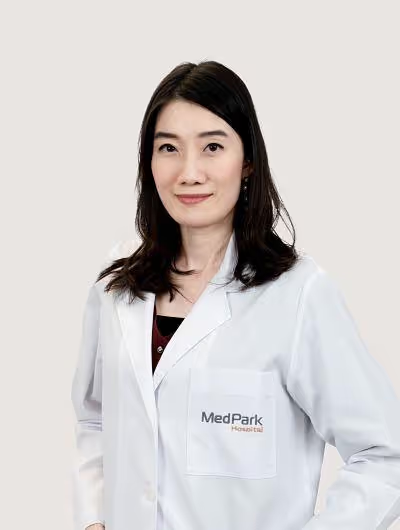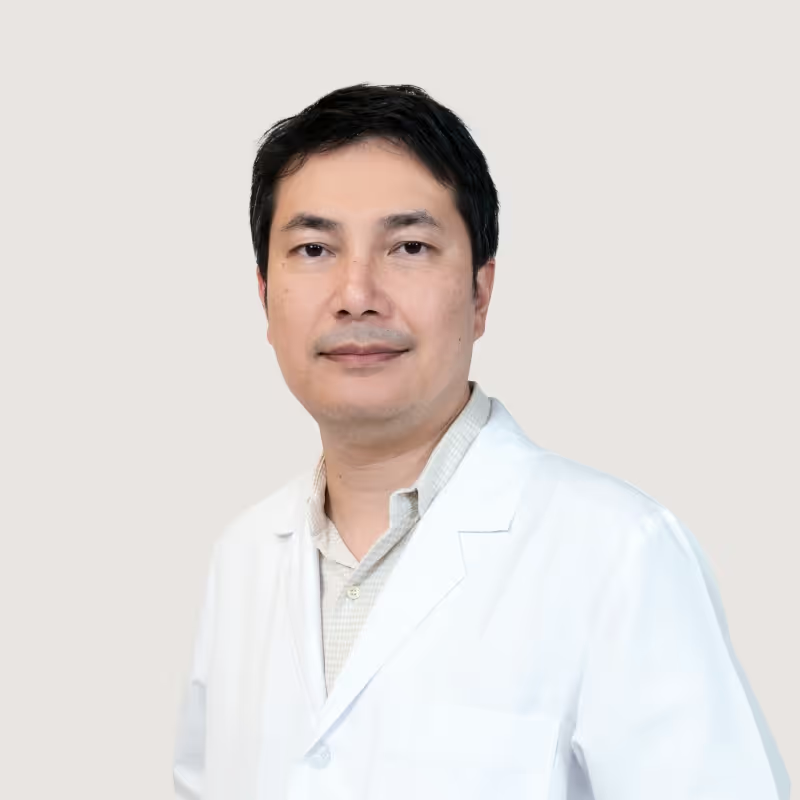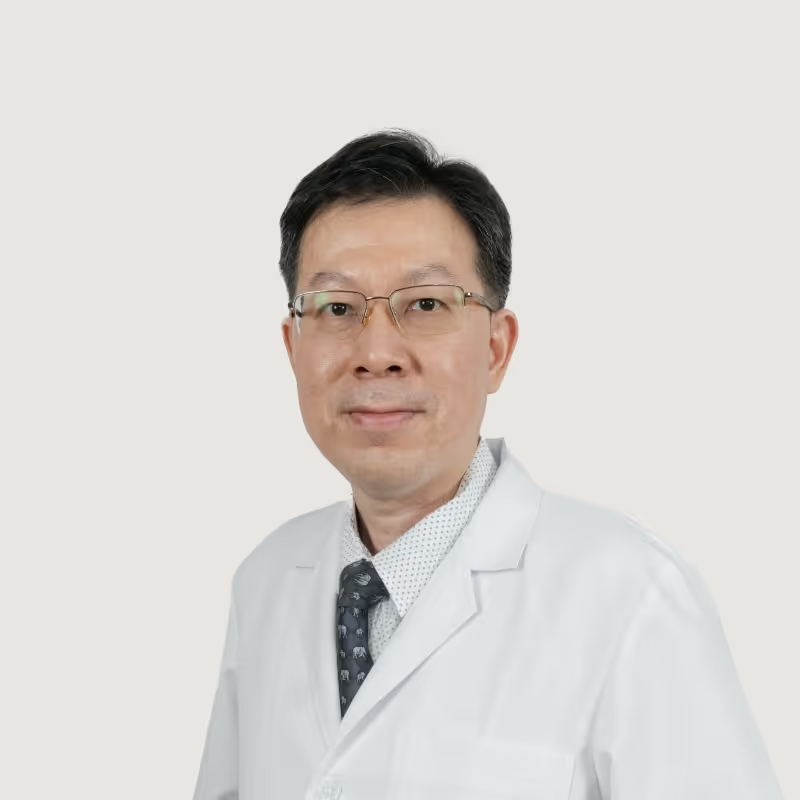การรักษามะเร็งด้วยยารักษาแบบมุ่งเป้า คืออะไร
การรักษามะเร็งด้วยยารักษาแบบมุ่งเป้า คือวิธีการรักษามะเร็งชนิดหนึ่ง ที่กำหนดเป้าหมายการรักษาตรงไปที่เซลล์มะเร็ง การรักษาชนิดนี้จะทำลายแต่เพียงเซลล์มะเร็งเท่านั้น แต่จะไม่ทำอันตรายเซลล์ปกติ การรักษาชนิดนี้สามารถทำงานด้วยตัวเองหรือสามารถททำการรักษาควบคู่ไปกับการรักษาชนิดอื่นๆ เช่นอย่างเคมีบำบัด (ทั้งแบบดั้งเดิมหรือแบบมาตรฐาน) การผ่าตัดหรือการฉายรังสี
เมื่อเกิดมะเร็งยีนในเซลล์มะเร็งจะเกิดการเปลี่ยนแปลง ให้เซลล์มะเร็งมีความแตกต่างจากเซลล์ปกติ เมื่อเซลล์เกิดความเปลี่ยนแปลงจะส่งผลให้เซลล์เกิดการเติบโตหรือเพิ่มจำนวนขึ้นอย่างรวดเร็ว อย่างไรก็ตามยังมีมะเร็งอีกมากมายหลายชนิดและไม่ใช่มะเร็งทุกชนิดที่จะมีรูปแบบที่เหมือนกัน มะเร็งที่เกิดขึ้นกับผู้ป่วยรายแรกอาจมีความแตกต่างจากมะเร็งที่เกิดขึ้นกับผู้ป่วยอีกคน หากมีความเข้าใจในข้อมูลเหล่านี้จะช่วยในการพัฒนายาที่สามารถมุ่งเป้ารักษาไปที่เซลล์มะเร็งได้ โดยยารักษาแบบมุ่งเป้าจะทำการจะปิดหรือป้องกันการเติบโตของเซลล์มะเร็ง หรืออาจเข้าไปช่วยทำให้เซลล์มะเร็งเข้าสู่กระบวณการทำลายตัวเอง
ยารักษามะเร็งแบบมุ่งเป้ามีความแตกต่างจากเคมีบำบัดอย่างไร
ยารักษามะเร็งแบบมุ่งเป้าจะทำการรักษามะเร็งด้วยวิธีที่แตกต่างจากเคมีบำบัด โดยมีความแตกต่าง 2 รูปแบบหลัก ดังนี้
- ยารักษามะเร็งแบบมุ่งเป้าจะทำลายแค่เฉพาะเซลล์มะเร็ง แต่จะไม่ทำลายเซลล์ปกติ ในทางตรงกันข้ามการรักษาด้วยยาเคมีบำบัดจะทำลายทั้งเซลล์ปกติและเซลล์มะเร็ง
- วิธีการทำงานของยารักษามะเร็งแบบมุ่งเป้าคือการป้องกันการเพิ่มจำนวนของเซลล์มะเร็งซึ่งวิธีนี้สามารถช่วยป้องกันไม่ให้เซลล์มะเร็งเพิ่มจำนวนตัวเอง แต่การรักษาด้วยเคมีบำบัดจะฆ่าเซลล์มะเร็งที่มีอยู่แล้วโดยไม่ได้ป้องกันการเพิ่มจำนวนอย่างยารักษามะเร็งแบบมุ่งเป้า
ยารักษามะเร็งแบบมุ่งเป้าทำงานอย่างไร
การรักษาด้วยยามะเร็งแบบมุ่งเป้ามีอีกชื่อเรียกว่ายาเฉพาะบุคคล เนื่องจากยาสามารถมุ่งเป้าไปที่ส่วนหรือสารเฉพาะจุดที่ต้องการทำลายในเซลล์มะเร็ง โดยจุดเฉพาะเหล่านี้อาจมีความแตกต่างกันออกไปถึงแม้ผู้ป่วยอาจเป็นมะเร็งชนิดเดียวกันก็ตาม เมื่อผู้ป่วยได้รับการตรวจชิ้นเนื้อหรือการผ่าตัดแล้ว อาจจะพบเนื้องอกชนิดต่างๆ ที่จำเป็นต้องได้รับการรักษาโดยการมุ่งเป้าไปที่จุดที่แตกต่างกัน การค้นหาจุดจะช่วยให้แพทย์สามารถทำการรักษาที่ถูกต้องและแม่นยำและจะช่วยให้การรักษาผู้ป่วยเกิดประสิทธิภาพอย่างสูงสุด
วิธีการจำแนกการบำบัดด้วยยามะเร็งแบบมุ่งเป้าสามารถแบ่งเป็นการใช้ยาประเภทที่มีโมเลกุลเล็ก หรือใหญ่ ดังต่อไปนี้
- ยามีโมเลกุลเล็กจะมีขนาดที่เล็กและสามารถเข้าไปในเซลล์มะเร็งได้ วิธีการทำงานคือการกำหนดเป้าหมายเฉพาะภายในเซลล์และทำงานโดยการป้องกันไม่ให้เซลล์มะเร็งเพิ่มจำนวนมากขึ้น
- ยาที่มีโมเลกุลขนาดใหญ่มักจะมีขนาดที่ใหญ่เกินเซลล์ วิธีการทำงานคือการโจมตีเซลล์มะเร็ง และตามด้วยการทำให้โปรตีนหรือเอนไซม์บนผิวของเซลล์เกิดอ่อนแอและหลังจากนั้นจะทำการทำลายโปรตีนและเอนไซม์เหล่านี้
ประเภทของยารักษามะเร็งแบบมุ่งเป้า
การรักษามะเร็งแบบมุ่งเป้าสามารถรักษามะเร็งได้หลายชนิด การรักษามะเร็งแบบแบบมุ่งเป้ามีหลายประเภท ดังต่อไปนี้
- สารยับยั้งกำเนิดหลอดเลือด - ยาชนิดนี้จะช่วยปิดกั้นเส้นเลือดที่ไปหล่อเลี้ยงเซลล์มะเร็งไม่ให้เซลล์มะเร็งเติบโต
- มอโนโคลนอลแอนติบอดี - ยาชนิดนี้จะช่วยส่งยาที่มีโมเลกุลเข้าไปในเซลล์มะเร็งเพื่อทำลายเซลล์มะเร็ง
- ยาที่ยับยั้งโพรทีเอโซม – ยาชนิดนี้จะช่วยทำลายโครงสร้างเซลล์มะเร็ง
- ยาที่ยับยั้งการส่งทอดสัญญาณเข้าสู่เซลล์ - ยาขนิดนี้จะทำการแทรกแซงการส่งทอดสัญญาณของเซลล์เพื่อเปลี่ยนการทำงานของเซลล์
วิธีการรักษาด้วยยารักษามะเร็งแบบมุ่งเป้า
- การรักษาด้วยยารักษาแบบมุ่งเป้าผ่านทางการฉีดเข้าเส้นเลือดดำ (IV Targeted therapy) การรักษาด้วยยารักษาแบบมุ่งเป้าจะใช้ฉีดยาในปริมาณสูงเข้าสู่เส้นเลือด ในขณะที่การรักษาด้วยยาเคมีบำบัดจะทำการฉีดยาผ่านทางเส้นด้วยการใช้สายสวนในการส่งยาเคมีมำบัดเข้าสู่กระแสเลือด การรักษาด้วยยารักษาแบบมุ่งเป้า สามารถทำด้วยวิธีดังต่อไปนี้
- การรักษาด้วย IV push – ยาจะถูกฉีดเข้าเส้นเอดผ่านการใช้สายสวน และจะใช้ระยะเวลาการทำไม่กี่นาที
- การรักษาด้วย IV infusion – วิธีนี้จะใช้เวลาตั้งแต่สองสามนาทีจนถึงสองสามชั่วโมง และจะใช้เครื่องควบคุมการให้สารละลายทางหลอดเลือดดำ (IV pump machine)
- การรักษาด้วยยารักษาแบบมุ่งเป้าผ่านการรับประทานยา (Oral Targeted Therapy) การรักษาด้วยการรับประทานยาทำได้โดยผู้ป่วยจะรับประทานยาด้วยการกลืนเช่นเดียวกับยาชนิดอื่นๆ ดังนั้นจึงเป็นสิ่งสำคัญทีควรจะแน่ใจว่าผู้ป่วยทราบถึงวิธีการรับประทานยา ปริมาณที่่ควรรับประทาน เวลาและระยะเวลาในการรักษา
ผู้ป่วยควรแจ้งให้แพทย์ทราบเกี่ยวหากพบปัญหาการรักษาด้วยการรับประทานยา รวมถึงควรแจ้งผลข้างเคียงในระหว่างการรักษา เพื่อที่แพทย์จะสามารถทำการปรับแผนการรักษาให้เหมาะสมแก่ผู้ป่วย
ผลข้างเคียงการรักษาด้วยยารักษามะเร็งแบบมุ่งเป้า
การบำบัดด้วยยารักษามะเร็งแบบมุ่งเป้าสามารถก่อให้เกิดผลข้างเคียงที่มีความแตกต่างจากการรักษาด้วยเคมีบำบัด ผู้ป่วยบางรายอาจได้รับผลข้างเคียงเพียงเล็กน้อย หรือไม่ได้รับผลข้างเคียงเลย เพราะความรุนแรงของผลข้างเคียงจะแตกต่างกันออกไปขึ้นอยู่กับตัวยาและตัวบุคคล ในบางครั้งอาจพบผลข้างเคียงที่พบได้ไม่บ่อย และผลข้างเคียงดังกล่าวอาจกลายเป็นภาวะแทรกซ้อนที่มีความรุนแรง อย่างไรก็ตามผลข้างเคียงส่วนใหญ่จะบรรเทาอาการลงเมื่การรักษาเสร็จสิ้นและเมื่อเซลล์ปกติเริ่มมีการฟื้นตัว ระยะเวลาของผลข้างเคียงจะแสดงอาการที่แตกต่างกันไปแล้วแต่กรณี
ปัญหาที่เกี่ยวกับผิวหนัง
- รู้สึกปวดแสบปวดร้อนบริเวณผิว
- ผิวหนังไวต่อแสง
- ผื่นบริเวณหนังศีรษะ หน้า คอ หน้าอก และหลังส่วนบน
- ผิวแห้งลอกเป็นขุยบริเวณมือและเท้า
- เล็บมือและเล็บเท้ามีสีแดง บวมและเปราะ
- เกิดอาการโรคมือเท้าปาก
- ผมบางและแห้ง
- ผมสีเข้มขึ้น
- ผิวหนังเหลืองขึ้น
- เปลือกตาแห้ง แดง และผิดรูป
ปัญหาผิวหนังจะมีการแสดงอาการที่แตกต่างกันไป โดยเริ่มตั้งแต่อาการไม่รุนแรงปานกลางจนถึงรุนแรง หากมีอาการที่ไม่รุนแรงหรือมีอาการรุนแรงระดับปานกลาง แพทย์จะไม่ทำการปลี่ยนยารักษามะเร็งแบบมุ่งเป้า แต่หากเกิดอาการที่มีความรุนแรง อาจจะจำเป็นต้องปรับขนาดยาสำหรับการบำบัดรักษา
ผลข้างเคียงที่พบได้บ่อยรวมถึงผลข้างเคียงที่มีความรุนแรง
การรักษาด้วยยารักษามะเร็งแบบมุ่งเป้ายังมีผลข้างเคียงอื่นๆ ที่อาจมีความคล้ายคลึงกับผลข้างเคียงการรักษาด้วยเคมีบำบัด ดังนี้
- คลื่นไส้และอาเจียน
- ท้องเสียหรือท้องผูก
- เจ็บบริเวณปาก
- หากใจลำบาก
- ไอ
- อ่อนเพลีย
- ปวดศีรษะ
- ผมร่วง
- อวัยวะถูกทำลาย ยกตัวอย่างเช่น ต่อมไทรอยด์ ตับ หรือไต
- อาการแพ้ (ในขณะกำลังรับยาผ่าน IV)
- เพิ่มความเสี่ยงในการเกิดการติดเชื้อ
- การเกิดมะเร็งซ้ำ
- การบวม
- แผลหายช้า
- ภูมิคุ้มกันทำลายตัวเอง
- กล้ามเนื้อหัวใจถูกทำลาย
- ความดันโลหิตสูง
- เลือดไหล หรือเกิดลิ่มเลือด
ผลข้างเคียงที่มีอาการรุนแรง ยกตัวอย่างเช่น อาการหายใจลำบาก เวียนศีรษะ เจ็บแน่นบริเวณหน้าอกหรือลำคอ รวมถึงปากและลิ้นบวม
ข้อควรระวังเพื่อความปลอดภัยสำหรับการบำบัดด้วยยารักษามะเร็งแบบมุ่งเป้า
โดยปกติการรักษาแบบมุ่งเป้าผ่านการรับประทานยามักจะทำเองที่บ้าน และอาจมีตัวยาบางชนิดที่อันตราย ผู้ป่วยควรทำการปรึกษาแพทย์เพื่อสอบถามวิธีการจัดเก็บตัวยารักษามะเร็งแบบมุ่งเป้าอย่างถูกวิธี














